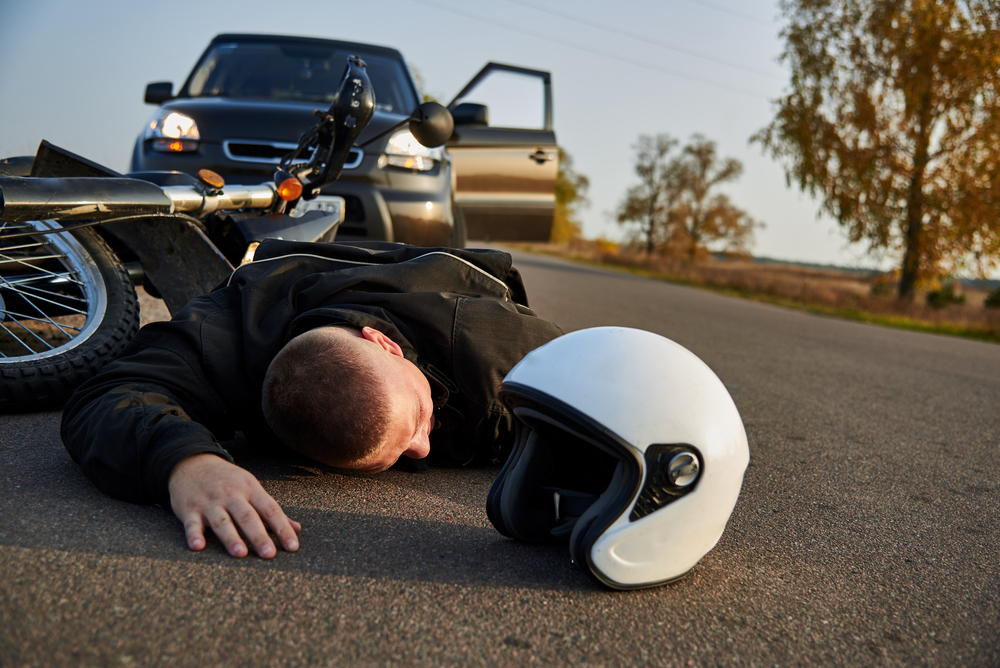
Partner at Charbonnet Law Firm LLC
Practice Areas: Car Accident, Personal Injury

Motorcycle rides across Louisiana can be thrilling—but they also come with serious safety risks. That’s why the state has strict helmet laws in place. If you’re involved in a motorcycle accident, whether or not you were wearing a helmet can have a significant effect on your injury claim. It’s not just about protecting your head—it’s about protecting your rights.
This article explains how Louisiana’s helmet laws work, how they affect fault and compensation after a crash, and what role expert witnesses and insurance companies play when helmet use is in question. If you’re a rider in Louisiana, understanding these rules could make all the difference after a serious accident.
Yes, Louisiana law requires all motorcycle riders and passengers to wear a DOT-approved helmet. According to Louisiana Revised Statute § 32:190 The helmet must adhere to federal safety regulations and be fastened firmly with a chin strap. Federal safety standards. This applies to all riders—regardless of age or experience.
In Louisiana, helmet use can directly impact a motorcycle injury claim. Under Civil Code Article 2323, the state’s comparative fault rule may reduce your compensation if not wearing a helmet contributed to your injuries—even if another driver caused the crash. You can still file a claim, but your recovery may be limited.

Helmet use isn’t just a matter of law or insurance—it’s often part of courtroom discussions, too. When a motorcycle accident leads to serious injuries, expert witnesses are sometimes brought in to explain how the crash unfolded and whether helmet use contributed to the severity of injuries.
Helmet experts and accident reconstruction specialists help determine how helmet use (or lack thereof) influences injury outcomes and liability in legal claims.
These professionals include accident reconstructionists, biomechanical engineers, or physicians familiar with head trauma.
They might examine:
According to the CDC, helmets reduce the risk of head injury by 69% and the risk of death by 37% in motorcycle crashes.
Courts and insurers often rely on this kind of expert analysis when deciding fault, evaluating injury claims, and assigning compensation.
Your helmet use doesn’t just matter in court—it issues during the insurance claims process, too. Insurance companies closely examine helmet compliance after a motorcycle accident. If you weren’t wearing one or if your helmet didn’t meet safety standards, it can affect how your claim is handled.
Insurance adjusters often view non-compliance as a contributing factor to injury severity, which can reduce the payout in a personal injury claim.
Insurance companies may argue that your failure to wear a helmet increases your injuries, and therefore, you share some blame. This could result in a lower settlement, even if another driver were clearly at fault for the crash. This shows how important it is to follow all helmet laws—not just for your safety but also to protect your financial rights if an accident occurs.

Louisiana law does include some narrow exceptions to the helmet rule. For example, riders may be exempt if they’re operating a motorcycle with a completely enclosed cabin or participating in a permitted parade.
Even when an exception to Louisiana’s helmet law applies, insurance adjusters and opposing counsel may still claim that the injuries were more severe because a helmet was not used.
While these exceptions are legal, they don’t guarantee protection in injury claims. If you’re involved in a crash without a helmet—even under an exception—you may still face questions about how that decision impacted your injuries.
The bottom line is that the law may allow it, but your legal case might suffer if you’re hurt while riding without a helmet.
There’s no question that helmets save lives. They’re one of the most effective ways to prevent traumatic brain injuries in a crash. The protective shell, impact-absorbing liner, and secure chinstrap all work together to reduce head trauma during an accident.
The CDC reports helmets reduce head injury risk by 69% and fatal crash risk by 37%.
This effectiveness plays a role in both medical outcomes and legal ones. When courts or insurance companies assess damages, they consider whether an injury was preventable—and helmet use often influences those conclusions.
Even minor head injuries can lead to long-term issues, from memory loss to cognitive impairment. That’s why helmet use is seen as both a personal safety decision and a legal factor
| Helmet Status | Injury Severity Risk | Legal Impact in Louisiana | Insurance Claim Impact |
| DOT-Approved Helmet | Lower | May support full recovery of damages | Fewer disputes from insurers |
| No Helmet | Significantly higher | May trigger comparative fault reduction | Higher risk of claim reduction |
| Non-DOT Helmet | Moderate | Helmet may be deemed non-compliant | Possible partial liability |
| Helmet Law Exception | Varies | May limit fault attribution | Still subject to medical scrutiny |
Yes. Louisiana requires all motorcycle riders and passengers to wear helmets that meet DOT safety standards, with very few exceptions.
Yes, but your compensation might be reduced. Courts may find that not wearing a helmet contributed to the severity of your injuries.
Insurers often use helmet non-compliance to argue for reduced payouts, especially in head injury cases where protective gear could have helped.
Experts provide evidence on helmet compliance, injury severity, and crash dynamics. Their input helps determine fault and damages in court.
Yes. Exceptions include enclosed motorcycles or parades. But even with exceptions, not wearing a helmet can complicate claims and reduce compensation.
It can. Louisiana law allows partial fault, so if helmet use worsens your injuries, your payout may be reduced even if someone else caused the accident.
Wearing a helmet on Louisiana roads is more than a legal requirement—it’s a crucial decision that can shape your future after an accident. From injury severity to how much you might recover in a personal injury claim, helmet compliance plays a central role. Whether you were wearing one or not, motorcycle accidents are legally complex and often involve questions of fault, insurance policy interpretation, and medical evidence.
If you’ve been hurt in a motorcycle crash and need help understanding your rights, You can safeguard your claim and navigate your alternatives with the assistance of Charbonnet Law Firm, LLC.

With over 50 years of legal experience serving families in the New Orleans area and surrounding Louisiana communities, our firm takes pride in providing clients with personalized legal services tailored to individual needs.